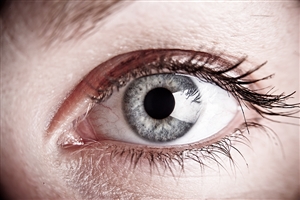![]()
A new laser surgery technique could slash the recovery time associated with post-
corrective laser surgery dry eyes, it has been claimed.
According to industry expert and ophthalmologist Dr Kerry Solomon, using a femtosecond laser as a means of creating a corneal flap allows for quicker normalisation of corneal nerves, which reduces the impact of dry eye symptoms.
He said that while severe dry eyes after
corrective laser surgery are relatively rare, new therapeutic options may provide more effective management of such conditions.
Dr Solomon told an audience at the Hawaiian Eye 2010 conference: "The concept is, if we can better approximate that edge, we can create a kinder, gentler, friendlier environment for that nerve to re-innervate, for example, our severed flap."
"The idea being to provide a better anastomosis so the nerve fibre layers can come back into the flap sooner to better re-innervate the cornea," he added.
Unfortunately, dry eyes are just one of many potentially permanent side-effects associated with
corrective laser surgery. Blurring, haloing and reduced peripheral vision are also associated with poorly performed
corrective laser surgery.
All of these conditions - particularly dry eyes - can be avoided with alternatives to corrective
laser eye surgery; such as Ortho K overnight contact lenses.
While Ortho K lenses have many of the benefits of laser surgery, in that they correct vision while doing away with the need for glasses or standard contact lenses, their effects are completely reversible.
They work by gently reshaping a person's eyes while they sleep. And because they physically change the shape of the eye, people only tend to need one prescription during their lifetime.
What is more, Ortho K lenses are an ideal solution for people who suffer from dry eyes because they dramatically reduce the amount of time a person has to wear their contacts.
Written by Oliver Edgar
Eye Laser Surgery: How do i-GO over night contact lenses compare to eye laser surgery?


